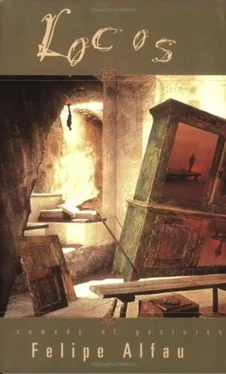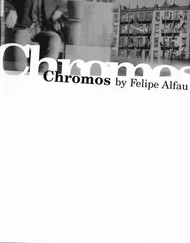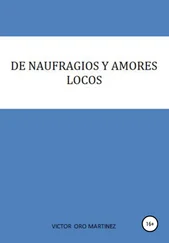There are many other pictures which I cannot clearly see, but these three stand out of the fog which surrounds my memories, they stand out as clearly as a man and a woman whom I also remember at that period and a subtle romantic feeling about their lives which either my childish intuition disclosed or my childish imagination fancied to be intimately blended with them.
Why my recollections of that period are so confused must not be held against my memory. I flatter myself at having developed a good ability to remember things and as a matter of fact I remember with amazing precision, as will be seen by the earlier parts of this autobiography, things which took place long before the ones I am about to narrate. But as I look back now, I know that I neither suffered at that time from an attack of amnesia, nor of stupidity. I simply was sleepy.
Yes, around the age of ten, I was terribly sleepy. I remember the things that happened then as one remembers things that happen when one is half awake. And indeed it was in that general drowsiness that many things began to wake in me, that I was lulled into greater sleepiness by the rocking waves of contrary streams of sentiments and emotions, of a great confusion of matters which I did not understand but suspected and into which I went with sleepy curiosity and drowsy fear.
When I was ten or twelve, I am not even sure which, my family moved to Vizcaitia, a village in North Spain where they had been in the habit of spending summers, and I became a student at the Colegio de los Padres Salesianos. I still remember the first impression I received upon arriving at Vizcaitia then. Even at that age I was conscious of the fact that the village had grown smaller since the last time I saw it. Soon after, an existence of hardship and suffering began for me.
Although as a child I had never been particularly fond of Vizcaitia, where I always felt like a stranger unable to mix completely with the other children who spoke Vascuence , a dialect which I was always loath to learn, I had always enjoyed there a life of freedom and a certain amount of play and solace. Now I had come to Vizcaitia to live and study, rather to study than to live.
I remember the period that follows, wrapped in a cloud of confusion and horror, which even to this day has left in me a decided feeling of hatred against everything that has to do with schools or study, and perhaps many other feelings into whose description this is not the place to enter.
I was not an intern. I lived with my family and there was a good two kilometers’ walk from my house to the school which I had to take twice a day, at seven in the morning and at nine o’clock at night.
The time between these two walks was filled with study, recitations, mental strain, discipline, punishment, fear. And then to walk home at night with a leaden heart and an eighty-page assignment of history for the next day. To study at home, to poison the few moments of freedom for which I had longed all day away from that scholastic prison, amidst the warmth of my family and the tolerance of my parents so different from the cruel strictness of those priests.
And as if that whole day had not been enough to shake my nerves, that walk home was the last bitter and fearful experience of the day. In order to get home I had to pass through a certain street and in that narrow, lonely, dark street there was a big dog, a dog which seemed to have made it his business to frighten me, to bark and to attack me. And I recall taking a long detour in order to avoid the dog or, standing cold and sleepy in the rain, waiting for the horrible animal to go away, and then I remember the confused thoughts that swarmed through my brain.
I had heard the priests repeat time and again that it was necessary to suffer in order to obtain happiness and also say that the devil likes to make us suffer in order to test our faith in Providence. All these things the priests said at the school and many other things which I did not understand very well. Even at that age I was faintly aware of the absurdity of such a tragic and self-punishing attitude about life. However, there was this dog. This dog was standing between me and the home and family which made me happy, and as his shadow loomed before me and as I stood there or circled around the village the priests’ words came back to me. There was a confusion of unpleasant experience and persistent teaching and that dog became for me the symbol of suffering before attaining happiness. That dog was there to test me or to tempt me. I did not know which, and I do not know to this day whether I thought the dog was God or the devil.
But I know one thing: that the dog became for me a nightmare, an enemy. It was an object of constant fear and this, together with the fact that my nervous system was weak due to lack of sleep and overwork, formed an obsession which haunted me day and night.
I left school at night and arrived home late. I had no appetite to eat my dinner and rushed through it in order to prepare my homework. Homework after fourteen hours spent in school. Every night as my mother pressed me to eat and asked me about school, I felt the same mad desire to cry and tell her to take me away from it all, but the idea of duty, study and sacrifice had been impressed on my young brain by that constant preaching and teaching always mixed with religious and mystic doctrines. I was too young to weigh matters freely in my mind. I was terribly tired and everything was confused. I only knew that there was duty, that I had to study, and even at that age I felt that should I speak, they would not understand, just as I did not understand them when they spoke.
I did not say what I wanted and that made things worse. I answered my mother that everything was all right and then began to study, my tired brain making a useless effort to memorize as we were told to, word by word, comma by comma, lessons written in a language too abstruse for any child, rhetorical and florid passages filled with empty words whose meaning no young person could understand, and I kept at this with fear in my heart until I fell asleep at midnight. Then my mother took the books and papers from under my head and said: no estudies mas but I could not hear her. I kept at it every night and I kept at it in vain.
On winter mornings, at five o’clock when it was still dark, I remember the maid coming into the room with half-shut eyes carrying a cup of black coffee:
‘‘Señorito, señorito, despiertese.’’
And I sat up and drank the coffee and she went back to sleep. And then I took the books from my bed (I even slept with books) and began again to study or rather to make myself believe that I was studying by looking blankly at the books and turning over the leaves.
For me duty had become a series of meaningless and mechanical motions and as long as I went through them, my conscience felt relieved, but underneath there was fear.
Then to dress and swallow the hateful breakfast and to rush away to school in order to be there at seven-thirty in time for Mass. That daily Mass, that perennial Mass, that unfailing and persistent Mass in a dark chapel and in obscure Latin. Such a drowsy ritual and such drowsy language after having had only five hours’ sleep. And another day.
That is why I say that at the age of ten I was terribly sleepy and everything in my memory seems to grow dim as if in a daze. A mixture of fog and fear, of suffering and misunderstanding.
I remember few pleasant things at that time, but I want to mention them. One of these was what we called Los Madrileños. A group formed by the few boys in that school who came from Madrid.
The Basque Provinces for some reason or other entertain a grudge against Madrid and all its products. In the Basque Provinces, or at least in Vizcaitia, they call people from Madrid Maquetos , a name which I believe is insulting and implies something like ill-born. That is what the other boys called us at school: El Circulo de los Maquetos (The Club of the Ill-born) and we were naturally thrown together by this general animosity and faithfully stuck to each other. After the recitations, while the other boys spoke Vascuence we spoke Spanish and were proud of it. We also sat together in the study hall.
Читать дальше












